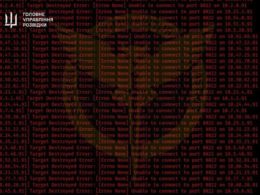US presidential candidate (Republican) Donald Trump revealed six names on his short list of vice presidential candidates, Fox News reported.
All of Trump's vice presidential picks have either opposed, questioned, or reduced US support for Ukraine, which is struggling to defend its sovereignty and territorial integrity from Russian aggression. Some of them have even insulted or slandered Ukraine and its president.
The list of vice presidential candidates includes three of Trump's former rivals in the Republican primaries: Florida Governor (Republican) Ron DeSantis, Senator of South Carolina (Republican) Tim Scott, and entrepreneur Vivek Ramaswamy.
Other potential candidates include South Dakota Governor Kristi Noem, US House member Byron Donalds, and former House member Tulsi Gabbard, who left the Democratic Party in 2022.
Vivek Ramaswamy ran for president but dropped out and supported Donald Trump. During his presidential campaign, Ramaswamy called Ukraine's President Volodymyr Zelenskyy a "comedian in cargo pants" and accused him of being a Nazi. Ramaswamy also stated that he would recognize the Russian-occupied territories of Ukraine as Russian, block Ukraine's accession to NATO, and lift all sanctions against Russia.
In March 2023, Florida Governor Ron DeSantis called Russian President Vladimir Putin a "war criminal" and condemned the Russian invasion of Ukraine, a week after he was criticized for remarks that appeared to advocate a reduction in US military support for Ukraine. Ron DeSantis ran for US president but dropped out and endorsed Donald Trump.
In October 2023, Senator Tim Scott said that he would not support a request from President Biden to package aid for Israel, Ukraine, and Taiwan and funding for border security, even though he has endorsed US spending for each of those purposes.
When Russia invaded Crimea in southern Ukraine in 2014, Kristi Noem, then a Republican Senator from South Dakota, said that the US had to be “united” in the face of Russian aggression.
However, later, Kristi Noem changed her position regarding Ukraine. In March 2023, Noem described America’s military aid to Ukraine as "a costly strategic mistake." Noem has also repeatedly said that US President Joe Biden "may have wanted Putin to invade Ukraine."
In September 2023, Republican Byron Donalds said the House of Representatives has no money for Ukraine. Byron Donalds voted in the House against American aid to Ukraine.
Speaking on the Russia-Ukraine war, Tulsi Gabbard said that Ukraine is not worthy of protection because it is not a democracy.
The Times: Europe steps up plans to independently arm Ukraine if Trump wins in 2024
Donald Trump noted that his vice presidential candidates "are all solid," although he did not name the most likely candidate. Trump said that he needs a candidate who can help him from the "voter's perspective" and someone who has "common sense" on issues such as the border, electric cars, and high-interest rates.
After winning the Iowa Republican primary, Donald Trump promised to resolve the situation with the war in Ukraine "very quickly." Trump’s claims to resolve the war in 24 hours appeared in a September interview with Meet the Press. Still, the former US President did not explain how he intended to do it, saying, “If I tell you exactly, I lose all my bargaining chips,” but promised to talk to both Zelenskyy and Putin and “make a fair deal for everybody.”
Ukraine's President Volodymyr Zelenskyy invited Donald Trump to Ukraine and expressed his readiness to go with him to the frontline in Ukraine so that he could see the reality of the war.
However, Trump did not accept the Ukrainian president's invitation to visit Ukraine to see for himself that it was impossible to negotiate a quick end to the war with Russia.
“I have great respect for President Zelenskyy, but I think it would be inappropriate to go to Ukraine at this time. The Biden administration is currently dealing with him, and I would not want to create a conflict of interest,” Trump wrote in a statement responding to President Zelenskyy.
In addition to his controversial statements on the Russian-Ukrainian war, Donald Trump also questioned the need for American intervention in a war in Europe if Russia attacks NATO countries.
During an election rally in South Carolina (USA) on 10 February 2024, Donald Trump said that he would encourage Russians to do whatever they want to any NATO member country that does not meet spending guidelines on defense and would not abide by NATO’s collective defense clause if reelected.
Commenting on Donald Trump's controversial statements, NATO Secretary General Jens Stoltenberg said that "NATO has been able to prevent an attack on the Alliance for 75 years" and that all current NATO governments emphasize the inviolability of the principle of common defense.
Trump's alleged influence on US House Speaker, Republican Mike Johnson, may be one of the reasons why the speaker is reluctant to put the US aid bill for Ukraine to a vote. Meanwhile, after the suspension of US military aid, Ukraine's Armed Forces began to lose ground in the face of Russia's winter offensive on the eastern front due to the steady degradation of Ukrainian firepower.
After more than four months of heavy fighting, the Ukrainian stronghold of Avdiivka in the Donetsk Oblast (eastern Ukraine) fell to Russian forces. As the encirclement of the Ukrainian forces loomed, the newly appointed Commander-in-Chief, Colonel General Oleksandr Syrskyi, decided to withdraw all Ukrainian troops from Avdiivka on 17 February.
Due to the acute shortage of artillery shells, Ukrainians are forced to ration their ammunition, which Russia is taking advantage of. The Russians, on the other hand, have intensified their artillery fire and continued to rain aerial glide bombs on Ukrainian troops. The lack of air defense systems and fighter jets makes it difficult for Ukraine to counter Russia’s air superiority on the frontline.
At the same time, the Speaker of the Republican-led House of Representatives, Mike Johnson, has been blocking the approval of new aid funding for Ukraine, Taiwan, and Israel for several months amid disputes in the US Congress over strengthening US border security.
On 13 February, US President Joe Biden urgently called on the House of Representatives to pass a bill providing assistance to Ukraine, emphasizing its crucial role in supporting America’s national security interests and aiding global efforts to uphold Ukraine’s sovereignty against Russian aggression.
The announcement came after the US Senate approved a $95.34 billion aid package for Ukraine, Israel, and Taiwan (including $61 billion for Ukraine), securing the necessary 60 votes to move the legislation forward to the House of Representatives.
However, on 14 February, Speaker Johnson said that the House of Representatives “will not be forced to pass a foreign aid bill that a majority of Republican senators oppose” and that contains no measures to secure the US border.
Related:
- US House speaker scolded for evading urgent Ukraine aid action
- US Senate approves foreign aid bill, including $ 61 bn for Ukraine, but House may reject it
- Biden: Lack of ammunition forces Ukraine to retreat from Avdiivka
- Ukraine Talks, ep. 2. Russia’s nuclear ambitions in space: A threat or a bluff?
- NATO chief slams Trump's threat to abandon allies
- CNN: Intel on Russian meddling vanished from White House





